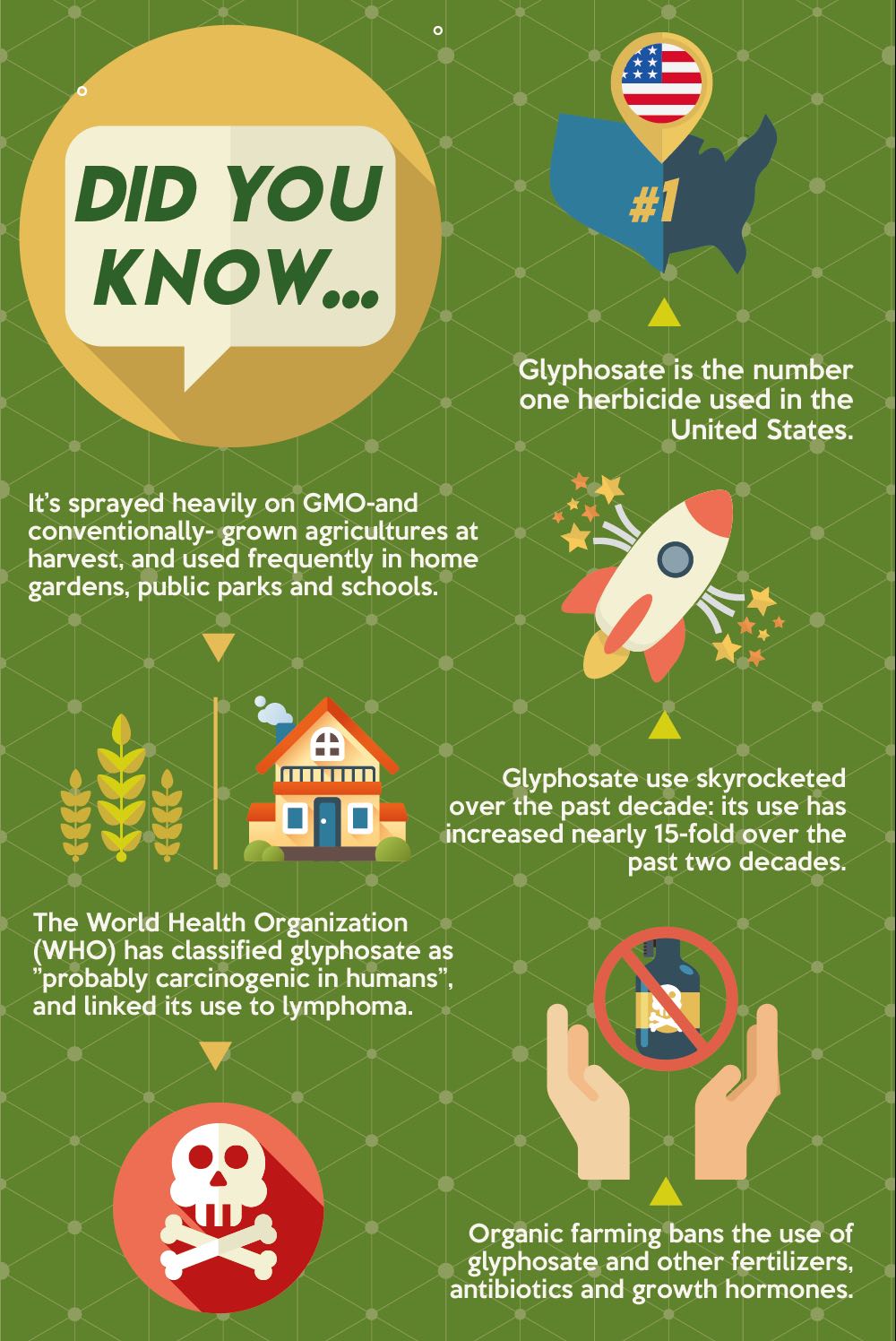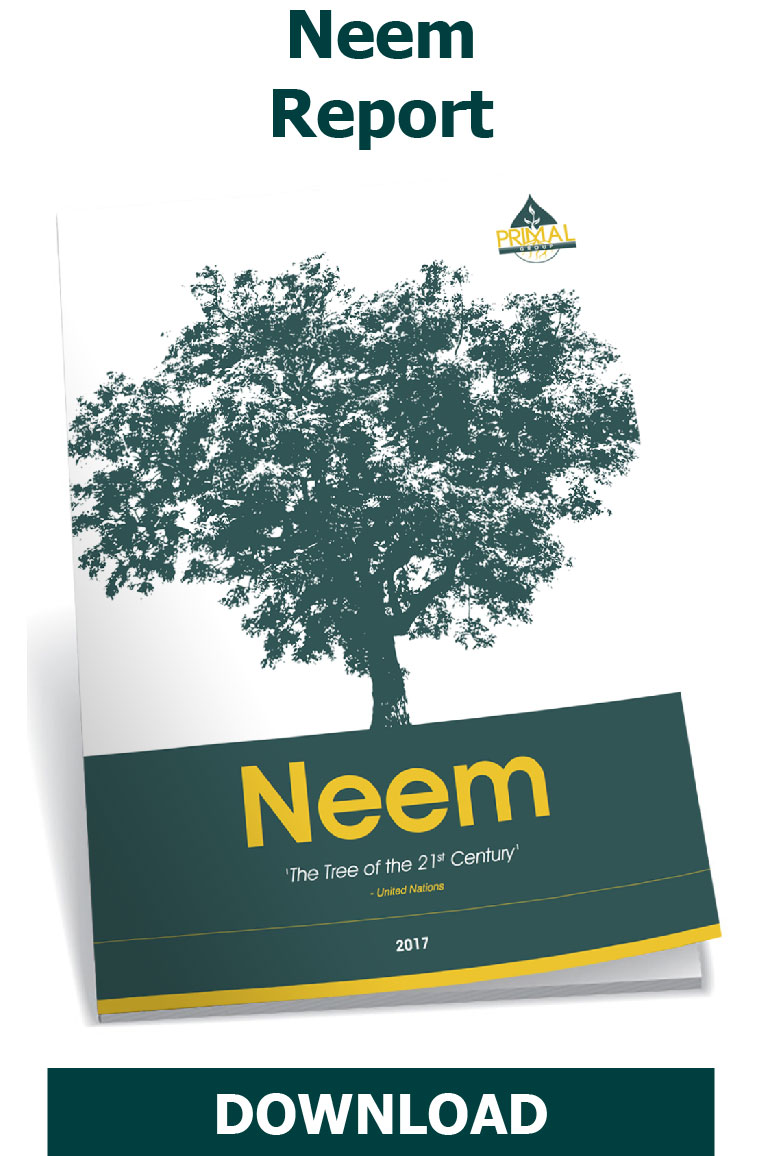In August 2018, Monsanto, the agrochemical and agricultural biotechnology company, was sued by a groundskeeper in the US who claimed to have developed cancer after years of using Roundup, a popular weed killer made by Monsanto. A judge ruled in his favor and ordered Monsanto to pay $289 million in damages. Glyphosate, a herbicide and a key ingredient in Monsanto’s weed killer, has been linked to cancer by California State researchers and the World Health Organization (WHO). This case could become a landmark in the future of chemical pesticides and herbicides, and proof of how in the age of social media and consumer power, companies will be forced to adhere to a higher standard of safe and sustainable products such as biopesticides.
In the aftermath of the ruling, the Environmental Working Group (EWG) conducted laboratory tests in which it found traces of glyphosate on popular oat cereals, oatmeal, granola and snack bars. Articles on this subject have been spreading like wildfire through social media and further fueling outrage about toxic pesticides, with most articles mentioning the link between Monsanto’s weed killer and Glyphosate.

Source: Environmental Sciences Europe
While Bayer and Monsanto controversially continue to advocate for the safety of their weed killer, sales will inevitably be affected by hesitant consumers who will turn to safer and more environmentally friendly products. Some countries like France have already suggested phasing out the use of glyphosate totally.
In the modern world, the rapid dissemination of information through digital channels has given consumers the power to not only hold companies accountable, but governments as well. While not all complaints result in changes to products and/or legislation, social pressure has definitely made companies aware of what people want, which will in turn have an influence on the type of products they manufacture in the future.
As of January 2018, there were 4.02 billion internet users around the globe – that’s 53% of the world’s total population. Active social media users make up 3.2 billion, or 42% of the population. A person using a defective product or being negatively affected by a company in any way now has a very public medium to expose that. In the past this would remain unknown, consumers were disconnected and therefore vulnerable; now they are empowered by an instant global audience, holding companies to a higher level of responsibility than ever before.
Pressure from consumers will continue to revolutionize the market. In the case of agriculture, companies are starting to be held accountable and pressured to evolve from the use of toxic pesticides, towards the use of biopesticides such as neem-based pesticides. While some companies have begun to introduce sustainable inputs, the core business still focuses on chemicals. The market for biopesticides has already experienced significant growth, and consumer demand for organic crops is only expected to increase in the future. The global biopesticide market is anticipated to grow at a staggering CAGR of 13.9% during the forecast period of 2017 to 2025. The market was worth US$3.3 bn during 2017 and is expected to rise to US$9.5 bn by the end of the forecast period.

 As the largest commercial neem plantation in the world, Primal is poised to be the largest producers of neem and Azadirachtin, the primary active ingredient found within neem fruit, which is renowned for its robust insecticidal properties against 600 species of insects. The oil and cake produced from the fruit offer further applications for across sustainable agriculture, making neem a viable and scalable solution to the growing demand for safer and more sustainably grown crops in the agricultural sector – an issue that is becoming increasingly prevalent as consumers demand greater accountability and visibility into food production.
As the largest commercial neem plantation in the world, Primal is poised to be the largest producers of neem and Azadirachtin, the primary active ingredient found within neem fruit, which is renowned for its robust insecticidal properties against 600 species of insects. The oil and cake produced from the fruit offer further applications for across sustainable agriculture, making neem a viable and scalable solution to the growing demand for safer and more sustainably grown crops in the agricultural sector – an issue that is becoming increasingly prevalent as consumers demand greater accountability and visibility into food production.
At Primal we rely exclusively on a truly organic, sustainable and regenerative agricultural system, not only as a trend that will be here today and gone tomorrow, but because we believe that current agricultural models are outdated and the proliferate use of chemical substances is unsustainable. Our mission is to become a global leader in agriculture, not only through the use of sustainable farming methods, but also through the application of innovation and technology in order to transform the global food production as we know it.